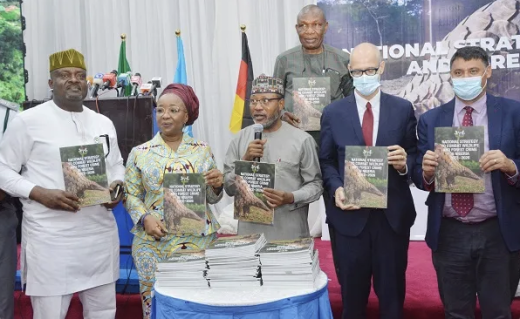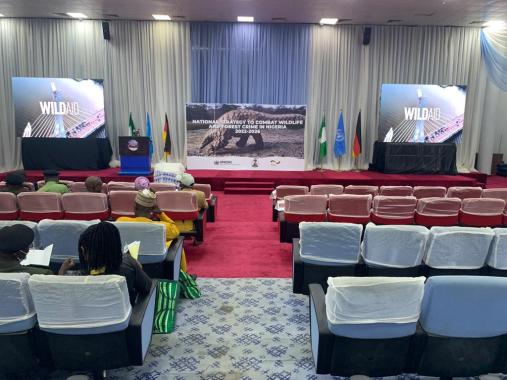
The federal government of Nigeria has launched a five-year National Strategy to Combat Wildlife and Forest Crime in Nigeria.
The strategy, prepared by the Federal Department of Forestry and the National Stakeholders Forum for Combating Wildlife and Forest Crime in Nigeria, with technical support from the United Nations Office on Drugs and Crime (UNODC), will facilitate the implementation of policies that will protect, restore, and promote sustainable biodiversity use in Nigeria.
In the last decade, Nigeria has become the number one transit point for the illegal trafficking of wildlife products such as ivory and pangolin scales, and a major market for illegal bushmeat.
In January 2021, the Nigeria Customs Service (NCS) at the Apapa Port seized 2,772 pieces of elephant tusks, weighing 4,752 kgs; 162 sacks of pangolin scales, weighing 5,329 kgs; 5 kgs of rhino horns; 103 kgs of skulls suspected to be of lions and other wild cats; and 76 pieces of processed timber. Also in July 2021, NCS seized 196 sacks containing 7,167 kgs of pangolin scales, 4.6 kgs of pangolin claws, and 888.5 kgs of ivory.
Wildlife crime has affected Nigeria’s biodiversity, leading to the massive decline of wildlife species such as lions, elephants, gorillas, chimpanzees, drill monkeys, and crocodiles.
As a signatory to the Convention on International Trade in Endangered Species of Fauna and Flora (CITES) and the United Nations Convention on Transnational Organized Crime (UNTOC), Nigeria aims to work with the stakeholders to tackle transnational and domestic wildlife crime, and marine, fresh water, and terrestrial wildlife crime.

The National Strategy also aims to enhance institutional capabilities, strengthen the legal framework, increase collaboration, honour national and international commitments to regulate and combat wildlife crime, remove enablers of crime, and raise awareness of wildlife crime, and provide alternative means of livelihood.
WildAid Founder and President Peter Knights, commends the Nigerian government for launching the strategy to tackle wildlife crime in the country's forests but urges the government to update its wildlife laws and improve enforcement.
“If Nigeria is to succeed in fighting wildlife crime we need to pass new laws swiftly, increase the enforcement effort and raise public awareness. Implementation is key in protecting wildlife and the public from zoonotic disease,” says Knights.
WildAid is working with various stakeholders in Nigeria, including the media, to raise awareness of wildlife crime and encourage the country to update its wildlife laws.
WildAid is also working with the Lagos state government to update its wildlife protection laws and with the Nigeria Customs Service and the National Environmental Standards and Regulations Enforcement Agency to amplify their efforts to tackle the illegal wildlife trade.
In January 2022, WildAid launched a massive public awareness conservation campaign in Nigeria to reduce demand for illegal bushmeat in major urban centers, support enforcement activities to tackle the illegal wildlife trade and raise awareness of disappearing wildlife using the slogans “Keep them wild, keep us safe” and “Poaching steals from us all.”
Click here to download a PDF version of the National Strategy to combat wildlife crime in Nigeria

